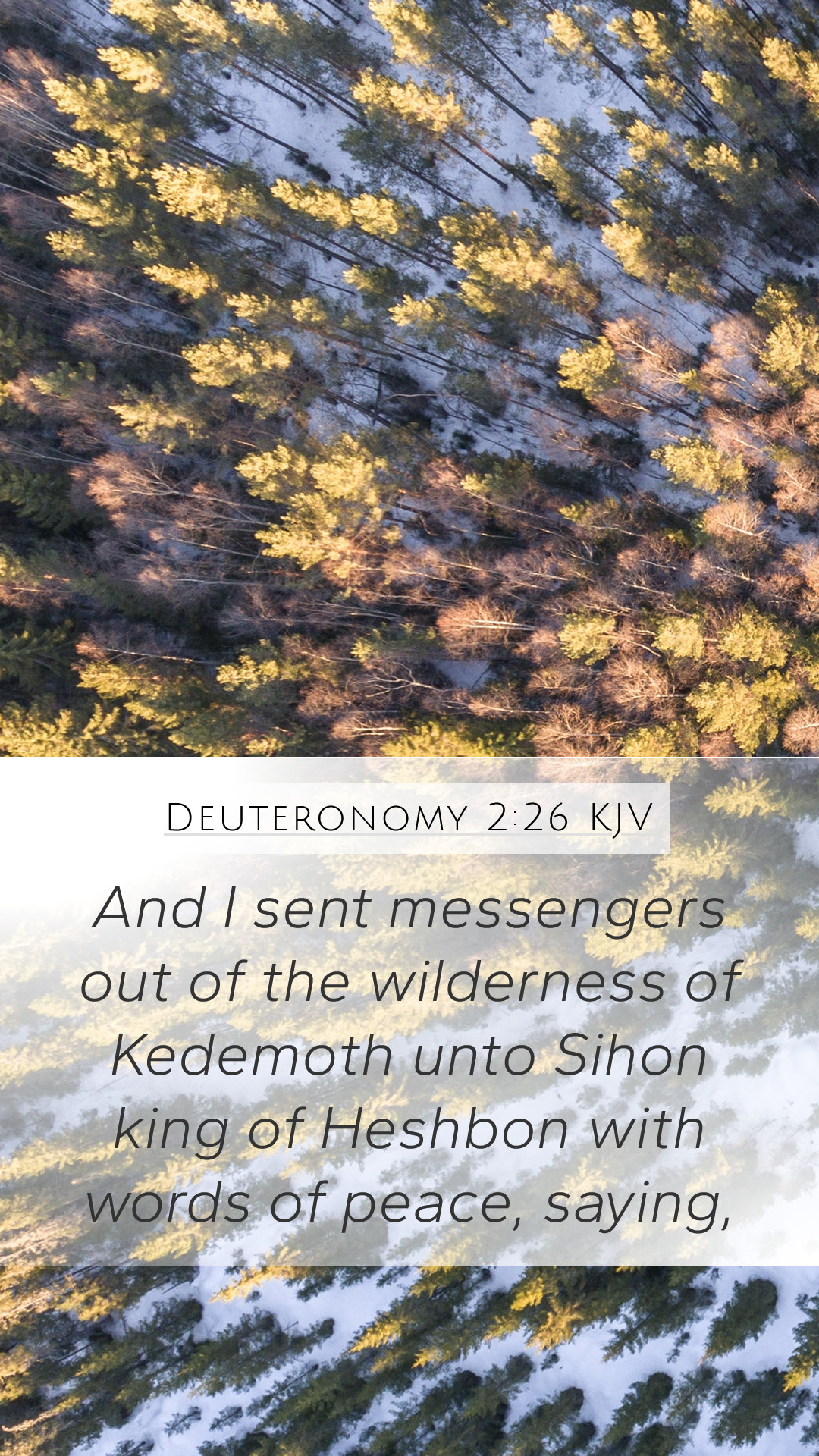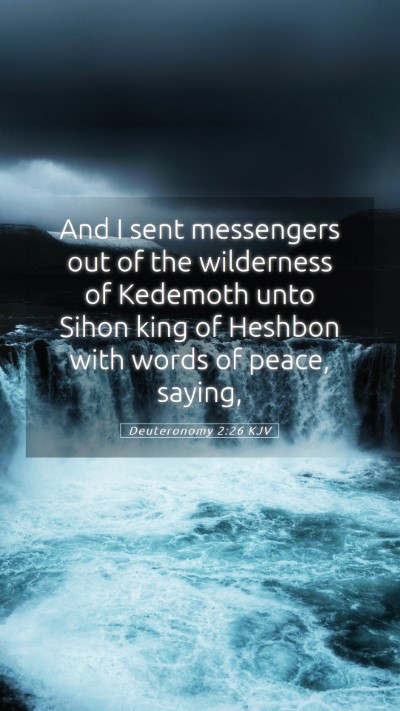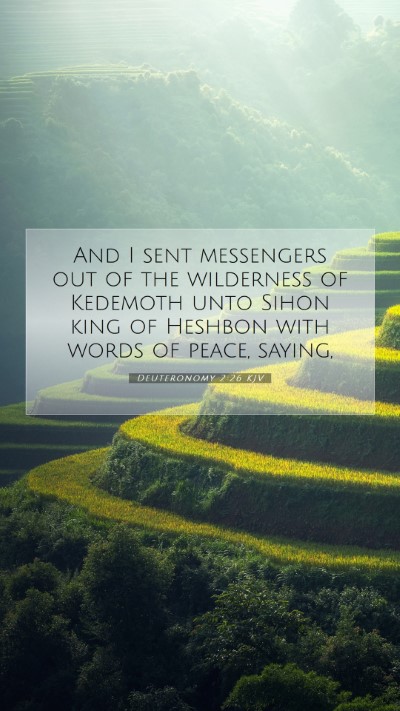Understanding Deuteronomy 2:26
Deuteronomy 2:26 states: "And I sent messengers out of the wilderness of Kedemoth unto Sihon king of Heshbon with words of peace, saying," This verse is part of the narrative detailing the Israelites’ journey through the Transjordan region as they prepared to enter the Promised Land. Here, Moses recounts how he sought a peaceful engagement with Sihon, highlighting a significant moment in Israel's history.
Bible Verse Meanings and Interpretations
This passage holds profound implications for how we are to approach conflicts and seek reconciliation. The message of peace sent to Sihon emphasizes several key themes gleaned from biblical commentaries.
Insights from Public Domain Commentaries
-
Matthew Henry:
Henry highlights the importance of peace in the interactions between nations and people. He suggests that Moses’ approach reflects a desire for diplomatic engagement, seeking to avoid unnecessary conflict. This aligns with the broader biblical theme of pursuing peace.
-
Albert Barnes:
Barnes points out that this message of peace was not only strategic but also showcased God’s character as one who advocates for peace. He notes that even in the face of impending battle, Moses sought to extend an olive branch. This serves as a lesson for followers in their personal dealings.
-
Adam Clarke:
Clarke comments on the significance of the wilderness of Kedemoth as a place of transition. He emphasizes the idea of preparation and readiness. The act of sending messengers to Sihon demonstrates both God's sovereignty and Moses' leadership in guiding Israel toward their destiny.
Historical Context and Application
To fully grasp Deuteronomy 2:26, it is essential to consider both historical context and its modern-day implications. This verse is situated in a narrative that illustrates the Israelites’ challenges and decisions as they journeyed toward the Promised Land. Moses’ peaceful overture stands in contrast to upcoming confrontations with enemy nations.
Applying Scripture to Daily Life
In contemporary terms, the call to seek peace is relevant in numerous scenarios—whether in family, workplace, or broader societal conflicts. Believers are encouraged to consider how they can adopt a posture of peace, reflecting Christ’s teachings in their daily interactions.
Related Bible Cross References
- Numbers 21:21-22: Israel sends messengers to Sihon, paralleling the peaceful approach in Deuteronomy.
- Romans 12:18: "If it be possible, as much as lieth in you, live peaceably with all men," reinforces the call for peace.
- Matthew 5:9: "Blessed are the peacemakers: for they shall be called the children of God," relates to the theme of seeking peace.
Further Study and Resources
Those interested in deeper biblical studies can benefit from various study tools and resources:
- Bible Study Guides: These provide structured lessons focusing on peace and reconciliation within scripture.
- Online Bible Study: Engaging with community discussions about peace narratives in the Bible enhances understanding.
- Bible Study Courses: Courses focusing on Old Testament narratives can expand on themes presented in Deuteronomy.
Conclusion: Insights on Meaning and Application
Deuteronomy 2:26 serves as a rich text for understanding God’s desire for peace and the importance of seeking reconciliation. Combining insights from recognized commentaries provides a well-rounded interpretation that is applicable to various situations we encounter today.


